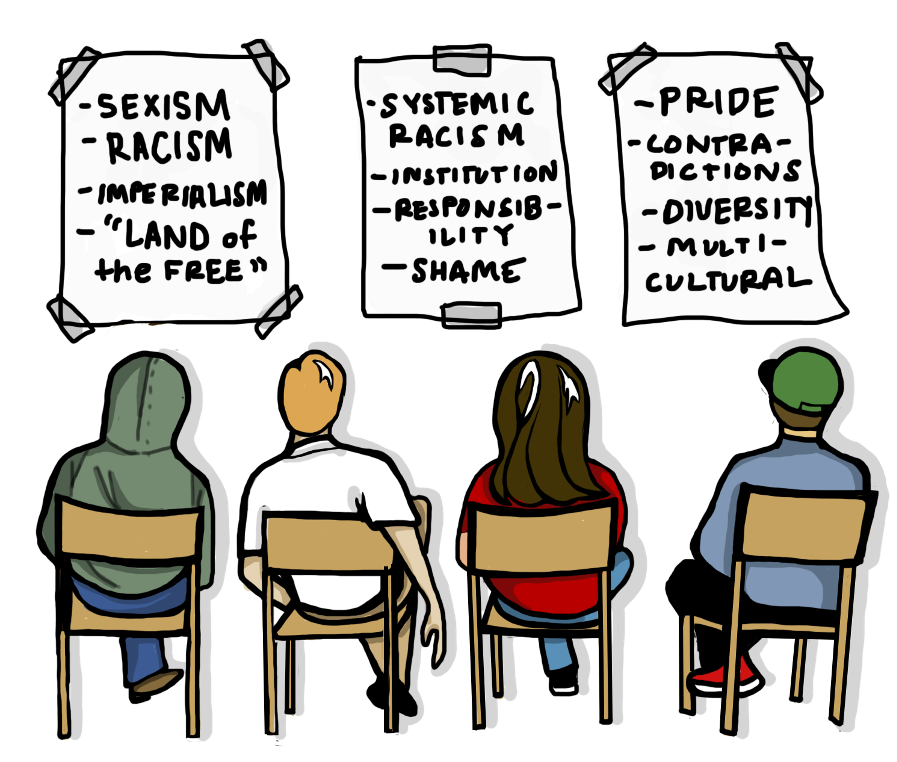Whether we like it or not, 2020 was a year characterized by events that challenged us as individuals and societies in ways that we didn’t believe possible. Indeed, leaving aside COVID-19 and its huge impact on our daily lives, we also experienced several events that pushed us to question our ways of living and our understanding of socio-economic and environmental issues. Therefore, it seems to me that values such as equality, solidarity and fairness were something that became central in a lot of discussions. Consequently, 2020 was the year where, thanks to some globally supported social movements, things that were acceptable before by the largest number were no longer tolerable in a time where companionship was needed.
For instance, we cannot talk about last year’s social movements without mentioning the series of police brutality protests that took place in America and around the world. The terrible events leading to these protests highlighted a major injustice in our societies, the one based on race. During the protests, we watched in horror as the series of violence and oppression inflicted on African American people unfolded before us. And with the realization that a group of people was oppressed, came the realization that others have it much easier.
These protests and social movements around the world represented a wakeup call for a lot of White people, who benefit every day from the privileges that come along with belonging to this group. People’s responses to this were very different, some seeing it as proof that they had the responsibility to educate themselves and to support in any way they can the fight against racism, while others were tempted to give a more simplistic and defensive response, one that could take many forms but that was always along the lines of “BUT I have a hard time too”. For example, a study made by Phillips and Lowery (2015) shows that White people who were asked to read a text informing them that they are advantaged in different domains, report more hardships than Whites who did not read it. This kind of response is due to the fact that White people were confronted with evidence that their group benefited from privilege, which can be uncomfortable. According to the authors, “claiming personal life hardships may help Whites manage the threatening possibility that they benefit from privilege” (Cooley, Brown-Iannuzzi & Cottrell, 2019). The reason why this is threatening is because we function in societies that predominantly believe that personal qualities determine life outcomes. Therefore, it may be difficult to recognize that one benefits from privileges because on some level it diminishes the legitimacy of people’s achievements. In this case, claiming hardship allows individuals to deny that factors such as systemic racial privilege helped them, without completely denying that their group as a whole benefits from it. This has important consequences, because if people think that they have not personally benefited from privilege, they would be prone to think that they should not endure personal costs associated with policies created to reduce inequity (Lowery, Knowles, & Unzueta, 2007).
However, informing people about their privilege can also have positive consequences. For instance, a study made by Cooley, Brown-Iannuzzi and Cottrell (2019) showed that informing white people about their privilege can increase the perceived racism in violent encounters between the police and black men, regardless of political ideology. Alternatively, without this information, White social liberals perceived significantly more racism than social conservatives. These results are important because in order to change, we first have to acknowledge the existence and the gravity of racism.
These findings offer perspectives about the effects of educating White people about their privilege. It also raises questions about the right way of doing without activating the need to deny the issue. One thing is certain, this will always be an uncomfortable subject, but it is also one that we have to address in order to grow as fairer societies and simply because it is our own responsibility.
Bibliography :
- Cooley, E., Brown-Iannuzzi, J., & Cottrell, D. J. (2019). Liberals perceive more racism than conservatives when police shoot Black men—But, reading about White privilege increases perceived racism, and shifts attributions of guilt, regardless of political ideology. Journal of Experimental Social Psychology, 85, 103885. https://doi.org/10.1016/j.jesp.2019.103885
- Lowery, B.S., Chow, R.M., Knowles, E.D., & Unzueta, M.M. (2012). Paying for positive group-image: How perceptions of inequity affect responses to redistributive social policies. Journal of Personality and Social Psychology, 102, 323–336.
- Taylor Phillips, L., & Lowery, B. S. (2015). The hard-knock life? Whites claim hardships in response to racial inequity. Journal of Experimental Social Psychology, 61, 12-18. https://doi.org/10.1016/j.jesp.2015.06.008
Featured image :
- Mcgrew, A. (2017, April 20). Addressing White Privilege [Illustration]. City On a Hill Press. Retrieved from: https://www.cityonahillpress.com/2017/04/20/addressing-white-privilege-exploring-hidden-biases/
Author : Paula Morales

